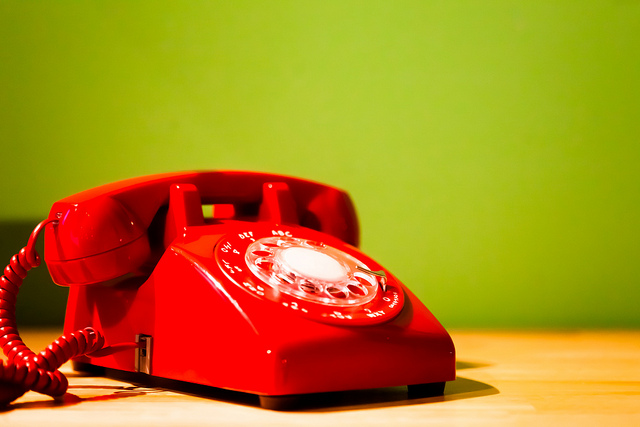 Phone interviews are the initial gate between you and your new job. If you’ve gotten to that stage, you have the chance to market yourself and get to the next stage – an in-person interview.
Phone interviews are the initial gate between you and your new job. If you’ve gotten to that stage, you have the chance to market yourself and get to the next stage – an in-person interview.
A reader of this blog reached out about her lack of success in making it past the phone interview:
I am reaching out to you today to ask for some insight to finding the right job for me. I have a Bachelor of Science in Journalism specializing in Advertising. I have been trying to get a full time job in Atlanta for a year. Using the tips from your website my resume and cover letter is looking much better. However I only make it to the phone interview then after nothing. Do you have some advice for someone at my level? Any tips will be greatly appreciated.
Of course I have some advice! Here it is:
My first question to you is: what do YOU think is the issue? My guess is that you have a pretty good idea about part of what is not working. Trust your gut and your mind. If you feel or think something was wrong, it was. Once you have identified the problem, you can do something to fix it.
My second question is: how focused are you on showing the employer that you a) know something about what they do; b) care about what they do; and c) can do what is needed to solve their problem. The key to a phone interview is to answer their questions succinctly and always draw a link between your answer and the job in question.
A phone interview is the time for the employer to get to know more about YOU. It is when they decide to bring you in for an in-person interview. They will only do that with someone who demonstrates they can do the job AND presents him/herself well. Ask yourself these questions, because the recruiter is evaluating you on these criteria:
- Do you speak well, not using a lot of “ums” or “uhs?”
- TIP: Pausing slightly before you respond to a question can give your brain a chance to formulate an answer.
- TIP: Speaking a little more slowly than usual also helps you avoid the “ums” and “uhs.”
- Do you sound professional, avoiding slang?
- TIP: Think about how you would address the principal of your school or the President of the United States, and speak like that.
- Do you sound like you’re listening to them and actually answering their questions?
- TIP: Repeating the question in your answer is one way to convince the recruiter that you are answering their question.
- Do you have energy? Are you positive?
- TIP: People can hear the smile in your voice so paste that smile on your face and you will even feel different, more optimistic and positive.
- Are you answering questions with enough detail but not too much?
- TIP: If you start to feel you are rambling, you are. Stop talking immediately. Ask “am I answering your question?”
- TIP: Repeat the question in your answer to help you focus on answering it fairly precisely.
- TIP: Write down and rehearse answers to the most common interview questions (there are many sites that list these); aim for 30-180 second answers.
Phone interviews are NOT the time to find out about what the employer can do for you. That turns the employer off completely. I still remember the man I interviewed who asked about benefits, schedule, time off and advancement opportunities, and not a single question about the job or organization. I didn’t ask him in for an in-person interview.
Phone interviews ARE a time to ask about the job itself. If given the chance, you can show your intelligence and enthusiasm by asking questions that will elicit more information about the job. Remember, you want to know more because you also are assessing whether this is a “right fit” job for you. “What’s the most pressing need for the next person in this position?” is one potential question that shows you are interested in learning more about the details of the job and hitting the ground running.
I suggest doing some mock phone interviews with someone who has done hiring and will give you honest, direct feedback. This is not the time for hurt feelings. This is the time to step back and observe yourself as a product you are selling. How can you be most effective? What’s not working? AND what IS working? Keep doing that.
Another note on nerves: Sometimes recruiters call and want to talk right away. Don’t succumb to that invitation. Give yourself a chance to prepare and to get to a landline if you have one (they are more reliable connections). If you applied for the job already, you will need to review your notes about the company as well as the job description and the questions you have prepared about the job and company. If you are being called cold, then you need to look at the job in question (assuming you can get a job description), do some basic research on the company (if you know the name), and review the standard questions you ask a recruiter about a job. I suggest this 45-60 second script:
Thanks so much for calling. I am definitely interested in learning more about this opportunity. However, I’m in transit right now. Is it possible for us to talk later today, say at xx time? (response is yes or no; if no, you fix a mutually convenient time) Is it possible for me to get a description of the job before we talk? My email is xxxxx. Thanks again and I look forward to talking later.
I hope these suggestions help you improve your performance on phone interviews!


